'On the front lines' and 'in the mud': Grassroots group helps people in crisis in real time
Forty-six alerts come in a single day. They start at 4:56 a.m. They buzz people’s phones and ping laptops until their heads hit the pillow that night. The next jolt comes at 2:57 a.m., and a new day has started.
These aren’t news alerts or friends’ messages. They’re people in crisis. Whether they get a response is a matter of life or death for someone struggling with addiction or mental health issues.
A male just walked into our office that needs immediate ip (inpatient) treatment. He was just released from (a) hospital with discharge paperwork. Need transportation. Can anyone help?
Need housing for a lady and her newborn baby. I called (redacted), too long of a wait, I can't get ahold of anyone. Any help is greatly appreciated.
We have a young man in the ER tonight who is unhoused and looking for work. He was just kicked out of his parents house today and is panicking. He said he is willing to do any sort of work. Even wanted to join the military but they wouldn’t accept him with a mental health diagnosis.
This is On the Front Lines Community Alliance, a multi-state effort that mobilizes volunteers in real time to help people who are suffering from opioid addiction and mental health crises. It started in 2018 as a Facebook group, quickly expanded with a 24-hour chat component and became a nonprofit this summer.
When no one else is around to help Cincinnati-area residents who are in need, someone who knows about their situation posts a message on the chat asking for help. Then a peer recovery supporter, treatment professional or harm reduction worker finds a way to get the person what they need.
The goal is “to have people who are on the front lines and actually, like, in the mud, advocating for the (right) level of care for these people,” said Daniel Ritchie, among the original members of the alliance.
Cincinnati-area peer supporters in recovery were looking for help
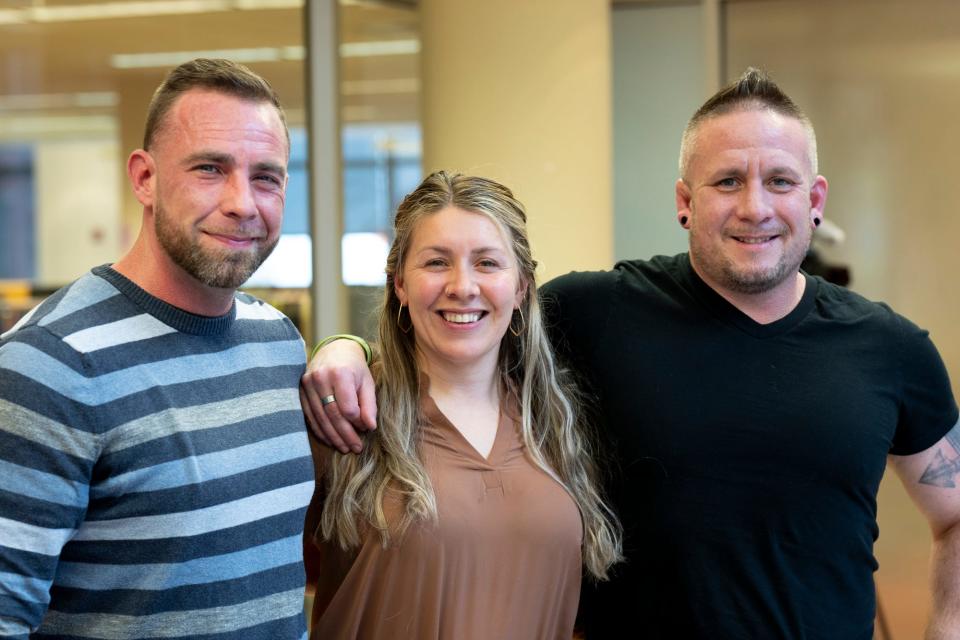
Amy Parker, of Fairfield, now an outreach specialist with Boulder Care treatment, started weekly get-togethers for peer supporters at a PF Chang’s in Norwood in 2018. A peer supporter herself, she wanted to create a space where they could help each other, because they struggle with being reminded of their own trauma as they try to help others.
The six people who met for lunch were the first batch of Ohio-certified peer support specialists in the Cincinnati area. There were no government or charitable agencies running it. Addiction doctors didn’t shape it. There was no mandate.
I have a client in Akron 27. He just went to the hospital for drinking hand sanitizer. It is my understanding that he has mh (mental health) issues as well. Any ideas?
I have a client that wants methadone, is in active use and can’'t get into (redacted). I need her to get somewhere soon !!! Helpppp thanks
Any suggestions for an adolescent needing residential treatment? DOC (drug of choice) meth Caresource insurance?
Parker pointed to a 2018 situation where her attempts to help a woman didn’t work. The Clermont County woman, no older than 22, Parker recalled, was in recovery from opioid use disorder and had endocarditis, a life-threatening infection of the heart's valves and lining that can happen to people who inject drugs.
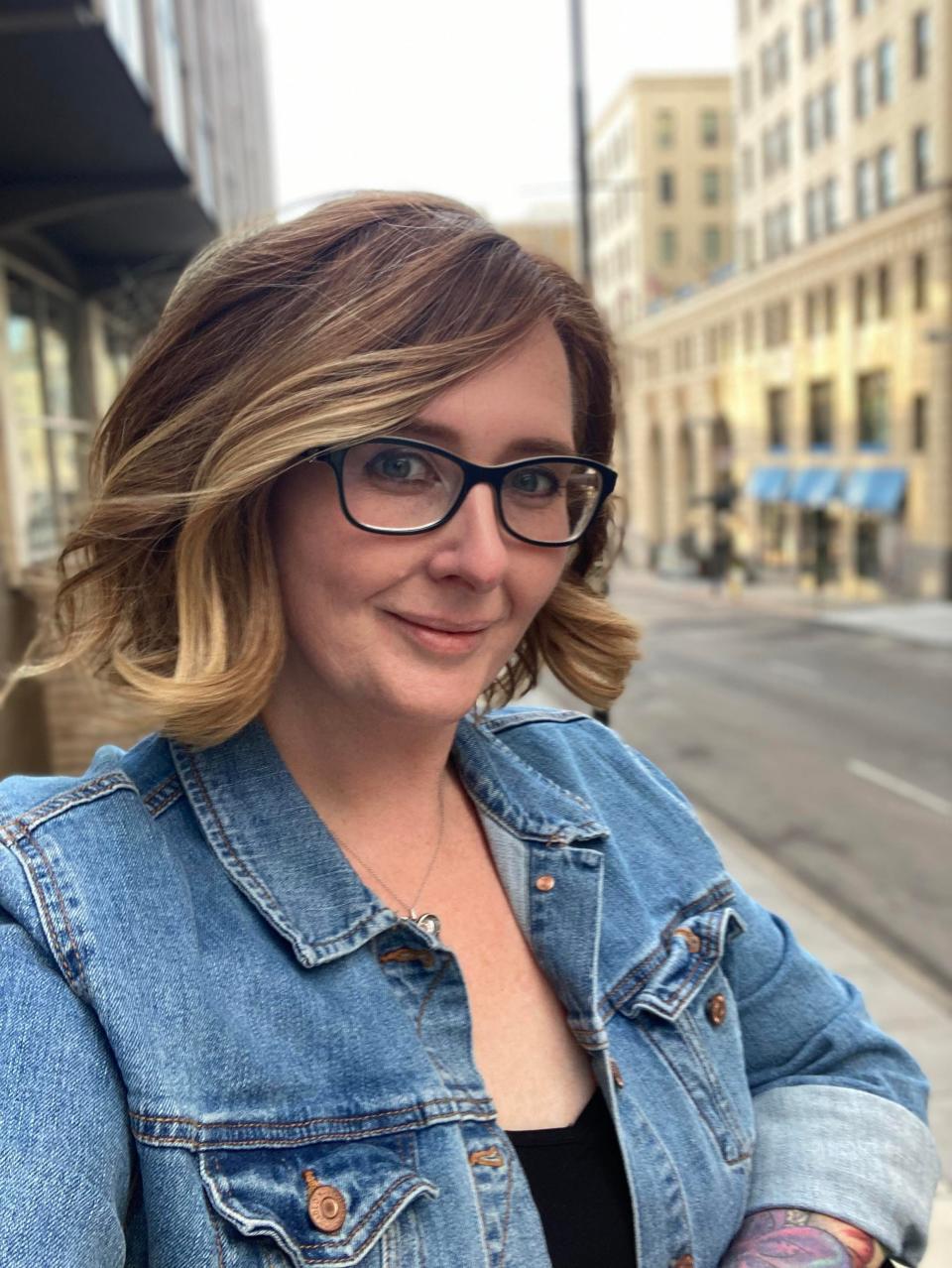
Parker saw a hint of herself in this otherwise vibrant, hopeful woman. But the woman's heart condition worsened.
“She died,” Parker said quietly.
“That was just hard. It really dawned on me – this is hard for the peer support people. It’s trauma. She would’ve thrived otherwise," Parker said. "She would have.”
So the peer supporters started supporting each other.
Peer supporters expanded to become On the Front Lines
Parker started inviting colleagues from her job at the time at Brightview Health to the luncheons. More and more people came. And they noticed they faced the same challenges that she did at her job.
I have 2 males sleeping in vehicle with 4 adult dogs & 5 puppies in Dayton. Any options would be appreciated.
I have a homeless vet who needs housed somewhere when their hotel is up on Thursday.
Hannah Schilling, of Delhi, an addiction counselor and peer supporter, was on a community quick-response team that helped those who’d recently survived an overdose. She said she would get frustrated sometimes because she had to find immediate help for a survivor, and it wasn’t always within reach.
“I think it’s a misconception that you can pick up a phone and find an answer,” Parker said.
Ritchie, who has a social media support group Facebook page called Inspiring Recovery with Daniel Ritchie, remembers being in active addiction, desperate to get help, and walking into a hospital. He was turned away with a list of resources.
“I remember feeling very dehumanized,” he said.
Anyone know of a sober living that accepts kids with the mother in Cincinnati? 3 girls age 7,5,3.
I have a woman with a 3 year old and a 5 month old escaping domestic violence that has been calling around, trying to get into a shelter and has been unsuccessful. She stayed in a tent with her children last night.
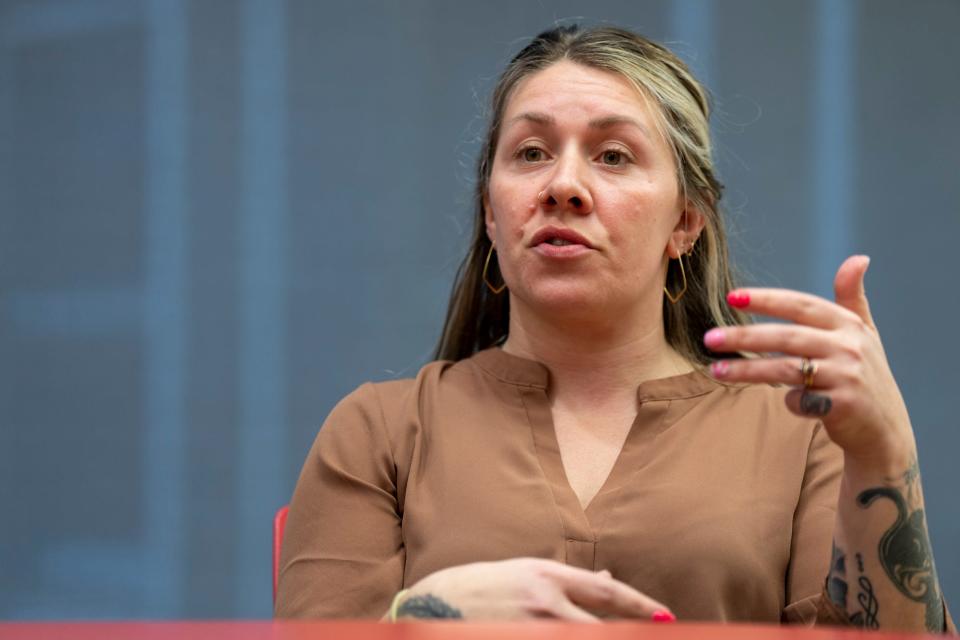
The peer supporters’ group had to evolve, Schilling said, to a platform in which they could still help each other, “but most importantly, help those still suffering from substance use disorder.”
Schilling became the architect, taking the lead in creating a chat designed for everyone.
The peer supporters had the life experience and trust from people who were in active addiction. The addiction and harm reduction professionals had evidence-based services ready but needed a network to help connect people to the individual care they needed.
“We wanted to do something that we ourselves would need,” said Aaron Laine, known across the country for his podcast From Tragedy To Triumph.
Now, they make sure another person doesn’t get brushed off. Ritchie will respond to requests in the middle of the night, picking up people who don't have a car or bus fare to get to a treatment provider. Once, he arranged a 281-mile trip to Nashville, Tennessee, for a man who needed a ride to a center.
Anyone know of treatment that accepts clients who have liver cancer? This person is not currently doing chemo.
Have a grandmother with a 2 1/2 yr old that will be homeless tomorrow living in a motel. – Need long term help.
Is there anywhere that would help a client with laundry detergent?
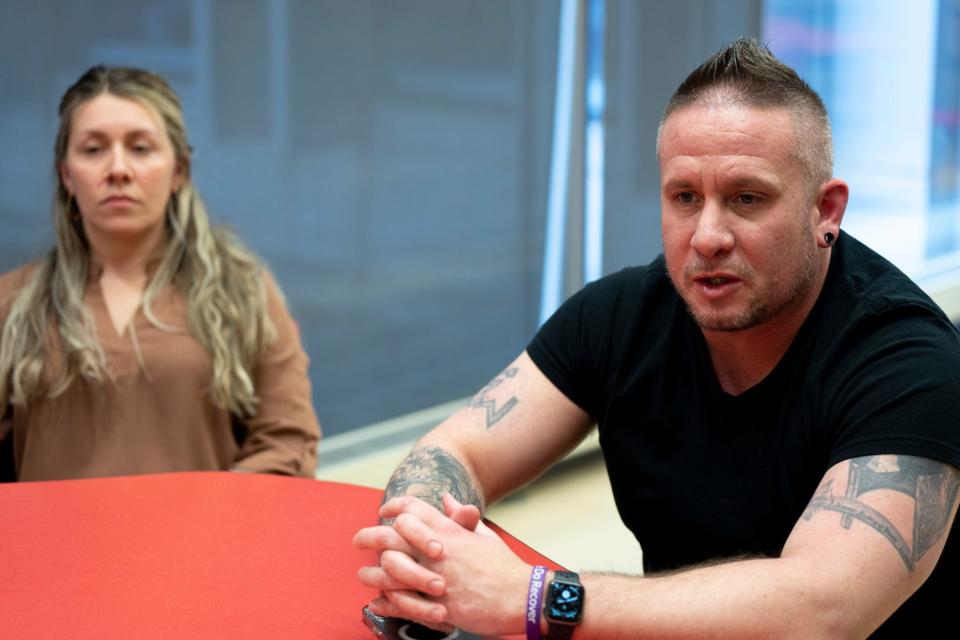
On the Front Lines reaches Ohio, Northern Kentucky and Indiana
The group expanded from the Cincinnati area and Northern Kentucky to nearly all parts of Ohio, more of Kentucky, and parts of Indiana. There are now more than 300 people helping.
In June, the group formalized: The IRS approved On the Front Lines Community Alliance as a charitable organization, that can accept accept tax-deductible donations. The group also created a website detailing its mission.
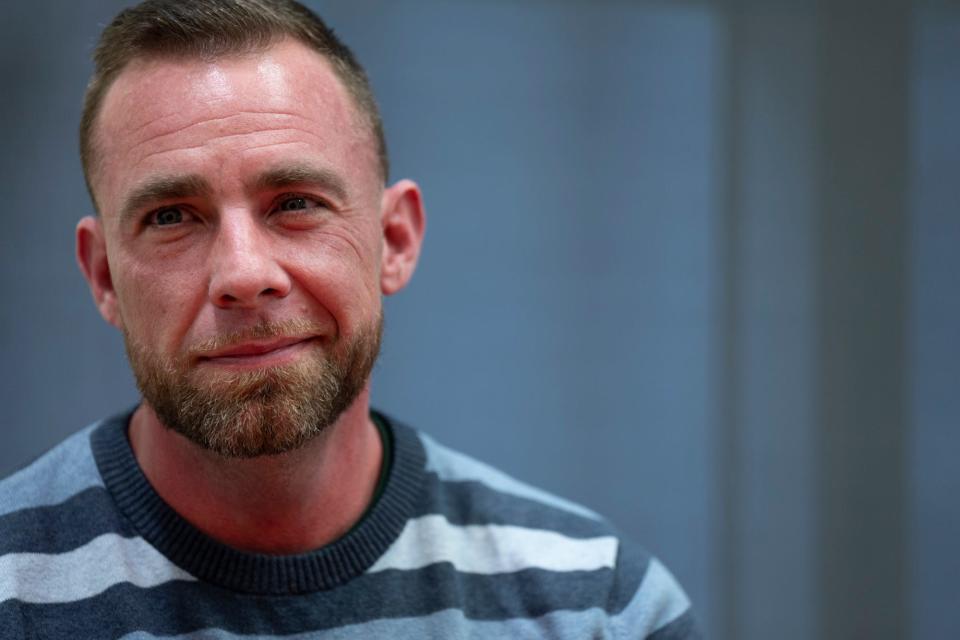
"We’re only just getting started," Laine said. "We will unlikely solve this crisis, but I don’t want to imagine what this looked like if we did nothing.”
36 yr old male dual diagnosis treatment DOC (drug of choice) is crack/cocaine or meth. Due to mental health I am having a hard time getting them inpatient treatment.
Hi, FL (Front Lines). A male just walked into our office that needs immediate ip (inpatient) treatment. He was just released from Christ Hospital with discharge paperwork. Need transportation? Can anyone help?
***
The messages shown in italics in this story were directly gathered with permission from the On the Front Lines group chat.
This article originally appeared on Cincinnati Enquirer: Peer volunteers in Cincinnati area respond 24/7 to addiction crises

